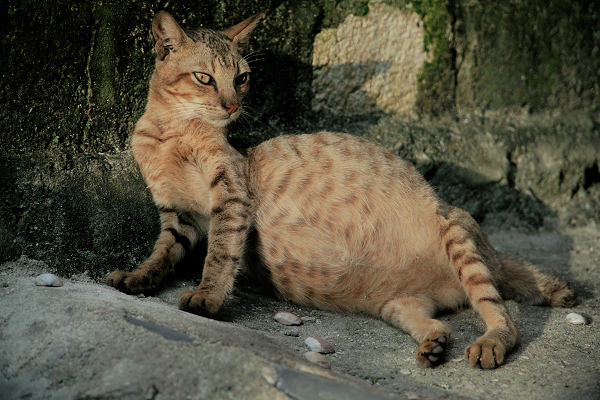Feline Infectious Peritonitis (FIP) is a viral disease caused by a mutation of the feline coronavirus (FCoV). While many cats may carry the coronavirus without showing symptoms, in some cases, the virus mutates into a pathogenic form that causes FIP. This disease is particularly prevalent in multi-cat environments such as shelters, catteries, and breeding facilities.
Feline Infectious Peritonitis (FIP) is a devastating and often fatal viral disease that affects cats worldwide. Caused by certain strains of the feline coronavirus (FCoV), FIP primarily impacts cats’ immune systems, leading to severe inflammation of the abdomen, kidneys, or brain. In this comprehensive guide, we’ll delve into the nature of FIP, its symptoms, treatment options, prevention strategies, and address frequently asked questions.
Types of FIP:
- Wet (Effusive) FIP:
- Characterized by the accumulation of fluid in body cavities, such as the abdomen or chest. This form progresses rapidly and is usually more severe.
- Dry (Non-Effusive) FIP:
- Involves the formation of granulomas or inflammatory masses in organs. This form progresses more slowly and presents with varied symptoms depending on the affected organs.
Symptoms of Feline Infectious Peritonitis:
General Symptoms
- Persistent fever unresponsive to antibiotics
- Loss of appetite
- Weight loss
- Lethargy and depression

Wet (Effusive) FIP Symptoms:
- Abdominal distension due to fluid accumulation
- Difficulty breathing if fluid is in the chest cavity
- Jaundice (yellowing of the skin and eyes)
Dry (Non-Effusive) FIP Symptoms:
- Neurological signs such as seizures, incoordination, and behavioral changes
- Eye inflammation (uveitis)
- Organ-specific symptoms depending on the location of granulomas (e.g., liver, kidneys, intestines)
Diagnosis of FIP:
Diagnosing FIP can be challenging due to the lack of specific tests. Veterinarians often rely on a combination of clinical signs, laboratory tests, and imaging studies to arrive at a diagnosis. Tests may include:
- Blood tests to check for elevated protein levels and white blood cell counts
- Ultrasound or X-rays to detect fluid accumulation or organ abnormalities
- Analysis of fluid samples from the abdomen or chest
Treatment of Feline Infectious Peritonitis:
Supportive Care:
There is no definitive cure for FIP, but supportive care can help manage symptoms and improve quality of life. This may include:
- Fluid therapy: To maintain hydration and electrolyte balance
- Nutritional support: High-quality diet and appetite stimulants
- Pain management: Medications to alleviate discomfort
Experimental Treatments:
Recent advances in veterinary medicine have shown promise with antiviral drugs such as GS-441524 and Remdesivir. These treatments have demonstrated effectiveness in some cases but are still under study and may not be widely available.
Palliative Care:
For advanced cases where treatment is not effective, palliative care focuses on comfort and quality of life, ensuring that the cat experiences as little pain and distress as possible.
Prevention Strategies:
Good Hygiene Practices:
- Regular cleaning and disinfection of litter boxes, food bowls, and living areas can reduce the risk of FCoV transmission.
Isolation of Infected Cats:
- Separating infected cats from healthy ones can help prevent the spread of the virus, especially in multi-cat environments.
Regular Veterinary Check-ups:
- Routine health screenings and early detection of symptoms can help manage and control the spread of FCoV.
Conclusion:
Feline Infectious Peritonitis is a serious and often heartbreaking disease, but understanding its nature, recognizing the symptoms, and knowing the available treatment options can help pet owners navigate this challenging condition. By implementing preventive measures and seeking timely veterinary care, cat owners can play a crucial role in managing FIP and supporting their feline companions. A well-informed pet owner is an empowered pet owner.
FAQs :
Q1: How is FIP transmitted between cats?
A1: FIP is not directly contagious. However, the feline coronavirus (FCoV), which can mutate into FIP, is transmitted through fecal-oral contact, commonly via shared litter boxes and grooming.
Q2: Can humans or other pets contract FIP?
A2: No, FIP is species-specific and only affects cats. It does not pose a risk to humans or other animal species.
Q3: Is there a vaccine for FIP?
A3: While there is a vaccine for feline coronavirus, its effectiveness in preventing FIP is questionable, and it is not widely recommended.
Q4: What is the prognosis for a cat diagnosed with FIP?
A4: The prognosis for FIP is generally poor, especially for the wet form. However, some cats with dry FIP may survive longer with supportive and experimental treatments.
Q5: How can I support a cat diagnosed with FIP?
A5: Providing a comfortable, stress-free environment, ensuring proper nutrition, and following your veterinarian’s treatment plan can help improve your cat’s quality of life.


Good MashAllah
❤️❤️❤️
Very informative ❣️
Thank you for your dedication to helping your students learn and grow. Your passion for teaching is truly inspiring.👍🏻💚